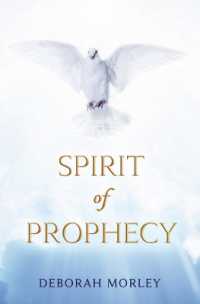基本説明
First outlining a rhetorical framework, which encompasses contemporary discourse analysis, the persuasive texts of three movements - Scientology, Jehovah's Witnesses and Children of God - are analysed in detail and their discourse compared with other kinds of recruitment literature. Cults' distinctive negative profile in society is not matched by a linguistic typology. Indeed, this negative profile seems to rest on the semantics and application of the term 'cult' itself.
Full Description
The Rhetoric of Religious Cults takes as its departure point the notion that 'cults' have a distinctive language and way of recruiting members. First outlining a rhetorical framework, which encompasses contemporary discourse analysis, the persuasive texts of three movements - Scientology, Jehovah's Witnesses and Children of God - are analysed in detail and their discourse compared with other kinds of recruitment literature. Cults' distinctive negative profile in society is not matched by a linguistic typology. Indeed, this negative profile seems to rest on the semantics and application of the term 'cult' itself.
Contents
Acknowledgements Introduction The 'Cults' and the Canons The Church of Scientology 'The Story of Dianetics and Scientology' The Jehovah's Witnesses The Family Is Cult Language Distinctive? Cults: What They Are Cults, Cults Everywhere? Conclusion: McKinsey as Cult? Bibliography Index







